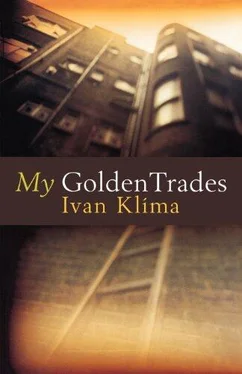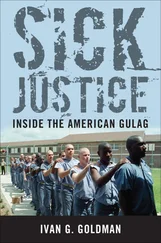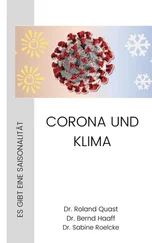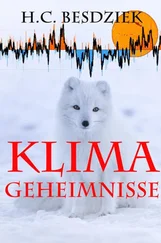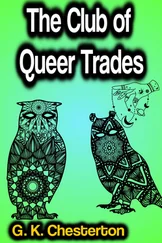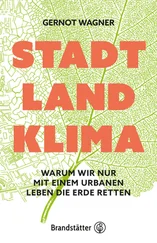Ivan Klima - My Golden Trades
Здесь есть возможность читать онлайн «Ivan Klima - My Golden Trades» весь текст электронной книги совершенно бесплатно (целиком полную версию без сокращений). В некоторых случаях можно слушать аудио, скачать через торрент в формате fb2 и присутствует краткое содержание. Год выпуска: 1998, Издательство: Granta UK, Жанр: Современная проза, на английском языке. Описание произведения, (предисловие) а так же отзывы посетителей доступны на портале библиотеки ЛибКат.
- Название:My Golden Trades
- Автор:
- Издательство:Granta UK
- Жанр:
- Год:1998
- ISBN:нет данных
- Рейтинг книги:4 / 5. Голосов: 1
-
Избранное:Добавить в избранное
- Отзывы:
-
Ваша оценка:
- 80
- 1
- 2
- 3
- 4
- 5
My Golden Trades: краткое содержание, описание и аннотация
Предлагаем к чтению аннотацию, описание, краткое содержание или предисловие (зависит от того, что написал сам автор книги «My Golden Trades»). Если вы не нашли необходимую информацию о книге — напишите в комментариях, мы постараемся отыскать её.
My Golden Trades — читать онлайн бесплатно полную книгу (весь текст) целиком
Ниже представлен текст книги, разбитый по страницам. Система сохранения места последней прочитанной страницы, позволяет с удобством читать онлайн бесплатно книгу «My Golden Trades», без необходимости каждый раз заново искать на чём Вы остановились. Поставьте закладку, и сможете в любой момент перейти на страницу, на которой закончили чтение.
Интервал:
Закладка:
When I told my dream to my non-existent psychoanalyst, he persuaded me that the dream had nothing to do with how I had longed to drive a locomotive. I had merely seen an image of my desperation to overcome the isolation in which I have found myself for some time now. The train, especially this complicated steam engine, represented an
unattainable community — shiny and attractive, even though hopelessly outmoded. It symbolized friendship, a sense of belonging, love. I wanted to climb aboard, but the train started up and disappeared, leaving behind the rail of hope as a reminder of missed opportunities.
When did I miss my chance? I can't answer that. People miss opportunities every day. One can only try not to miss them through laziness or fear.
Pavel returned with a bandage around his head. There was an unexpected satisfaction in his expression. The doctor, Pavel claimed, had let it be known he sympathized. Pavel forgot about his pain as soon as he thought others shared it with him.
My wife leaned over to me and whispered an offer to drive if I was too upset.
Why should I have been more upset than her?
She imagines, like most people, that anyone who spends some time in prison or in concentration camps will spend the rest of his days, at least subconsciously, in fear of losing his freedom.
In fact it is usually the other way around. Often it is those who know about prison only from hearsay who fear it most. Fantasy can be more frightening than reality. Or perhaps it is even simpler: those who have made it through once hope they will be able to make it through again; the rest don't know. They have nothing to base their hope on.
My experience of life so far led me to two simple, if contradictory, conclusions. The first one was: everything evil a person can imagine can in fact happen. The second derived from the first: nothing that will happen to me in life can be worse than what has already happened to me.
The yellow and white car continued to follow us,
keeping as close as safety allowed. Perhaps they were afraid we would try to escape, or they wished to frighten me to the point where I would try to lose them. They'd be happy enough to stop me for speeding.
Yet why should we, who had done nothing wrong, try to escape?
I wondered how many such chases and harassments were taking place at that moment? I've heard it said that a crime is committed somewhere on earth every second. Yet there are no generally acceptable definitions of crime. In some places, crimes are kept a secret. Elsewhere it is a crime when a man goes to a railwaymen's ball with his wife and daughter. And who keeps count of crimes perpetrated by criminals artfully disguised as crimefighters?
But it is certain that at any moment, somewhere in the world, there are those who are on the run from robberies, from raped women, from murders and from molested and abused children. The harassment we suffered is worth paying attention to for one reason alone: it was probably the most nonsensical, and therefore the most wasteful crime of all.
'Europe is asking,' Pavel had written in one of his recent feuilletons, which the young engine driver and others like him were probably copying out, 'where is the liberty, equality and fraternity for which people bled under the Bastille? It is asking, how is "all power to the Soviets" working, for which people died beneath the Winter Palace? It is asking, when will this game of power end that is keeping us artificially divided, so that we cannot have today what the prophets of happier tomorrows promise for the future?'
Pavel asked these questions in the name of Europe. But
it was Pavel who received a blow to the head. It seems to
me that if they beat someone for asking questions, it should
at least be his most personal question — especially if he is a
writer. If a writer asks in the name of Europe or his country
or the people, in whose name should the politicians ask?
But then what should a writer do, when the politicians
have long ago stopped asking questions and take care only
that they may rule without interruption, regardless of how
harmful their rule may be?
I drove Pavel and his wife across the city to their home.
When we parted, it occurred to me that I should get out
with them and put my wife and daughter on a tram, or try
to find them a taxi. But I assumed that the men in the
yellow and white car were more interested in Pavel, my
fractious friend, and that as soon as he got out, they would
disappear. So I now looked hopefully into the rear-view
mirror.
They were following me. I turned into a narrow side-street. So did they. It seemed I had committed one of the crimes they do not like to leave unpunished: I had expressed my solidarity.
We could have stopped and got out of the car. But one feels a little safer in a car. Many people think of the car as their second home and some prefer it to their real home, which offers them no change, no mystery, not even the excitement of speeding. It depends on the people — and on the car.
I continued on my way home. When I next looked into the rear-view mirror, I saw that another yellow and white car had joined the procession.
Mr Novák, the civil engineer, lived only a few doors from us, but until recently we had never actually talked. He
was handsome, and so was his wife. They had three children. They played golf together — at least I would occasionally see them loading golf-clubs into their Škoda. I think he saw his wife as a princess, and had he been a prince he would certainly have wanted to provide her with more than golf; but he was just a civil engineer. Last New Year's Eve, we walked back from the bus-stop together. He'd had a little bit to drink and he was carrying a basket piled high with eggs. He told me that he'd recently been lent one of my books that was circulating in manuscript, and that he'd been waiting for a chance to express his sympathy. He could well imagine what a difficult time I must be having when I couldn't make a living at work I knew how to do.
Then he spoke about his own difficulties, and how often he had to demean himself before dull people he had no respect for, and how he suffered this humiliation only so that he would not lose his pay cheque, which was miserable enough anyway. Was it possible, he asked me, as though I were some clairvoyant, for life to go on in this hopeless way? What, then, was a person here for and why should he stay around?
I wasn't certain if he meant his sojourn in our country, or on this earth.
He slipped a couple of eggs in my pocket, we wished each other a happy new year, and parted.
Several days later I saw him on a bitterly cold morning attending to a shiny Mercedes. He couldn't contain himself and asked me what I thought of it. Seven years old, but in wonderful condition. He and his wife had always longed for such a car and then a once-in-a-lifetime offer to buy this one came up, but he'd had to go so deeply into debt that if
anything happened to him in the foreseeable future, his family wouldn't even be able to afford a wreath. And then, with a rag that he'd dipped in some foul-looking chemical substance, he resumed polishing the chrome.
We had already passed through the city centre and through the Vyšehrad Tunnel, beyond which was a straight stretch of road running alongside the Vltava river. We were scarcely five minutes from home. It was at this point that the second yellow and white car suddenly accelerated past the first car and past us. For a moment I dared to hope they were leaving us to do something more useful, but then a uniformed arm emerged from the window waving the regulation lollipop stick that meant stop. I braked, and so did the car behind us.
Two uniformed officers got out of the first car and walked towards me. I opened the door.
Читать дальшеИнтервал:
Закладка:
Похожие книги на «My Golden Trades»
Представляем Вашему вниманию похожие книги на «My Golden Trades» списком для выбора. Мы отобрали схожую по названию и смыслу литературу в надежде предоставить читателям больше вариантов отыскать новые, интересные, ещё непрочитанные произведения.
Обсуждение, отзывы о книге «My Golden Trades» и просто собственные мнения читателей. Оставьте ваши комментарии, напишите, что Вы думаете о произведении, его смысле или главных героях. Укажите что конкретно понравилось, а что нет, и почему Вы так считаете.
